On the last day of June 2022, I went to bed knowing that thousands of people were serving decades-long prison sentences for growing or distributing marijuana in Thailand. On the first day of July 2022, I woke up to the news that nearly all those people were released from prison and given their weed back if it hadn’t been destroyed.
Your chance to retire overseas now
Your chance to retire overseas now
Learn more about Thailand and other destinations by signing up to our daily IL Postcards e-letter and we'll immediately send you a free report: 20 Countries Compared, Contrasted, Ranked, and Rated.
You don’t have to be rich to enjoy a pampered retirement, you just need to know where to go.
With our 34th Annual Global Retirement Index, our experts hand you a detailed roadmap. Details and a Special Offer Here!

By submitting your email address, you will receive a free subscription to IL Postcards, Overseas Dream Home, The Untourist Daily and special offers from International Living and our affiliates. You can unsubscribe at any time, and we encourage you to read more about our Privacy Policy.
Thailand’s Cannabis Giveaway: One Million Marijuana Plants
The government of Thailand removed cannabis from the Category Five narcotics list, and anyone with a license could freely set up a cannabis business in Thailand. The Thai government handed out one million marijuana plants to Thai citizens, encouraging them to start growing cannabis for profit. Six weeks later, there was a ganja shop 100 meters from my house offering everything from space cake to big bags of high-grade cannabis.
I witnessed a three-day “Cannabis Carnival” event on the ground floor of the Central Festival Mall in Pattaya. Vendors of high-grade ganja, medicinal tinctures, edibles, oils, soaps, and paraphernalia came from all over Thailand. I’ve never seen an industry ramp up so fast in my life!
Surprisingly, the driving force behind this whole cannabis campaign was the Thai Minister of Public Health, Anutin Charnvirakul. Although the reclassification of cannabis as a non-narcotic substance seemed like an abrupt change to most expats living here, it had sneakily been coming for a long time.
The Rise of Medicinal Cannabis in Thailand
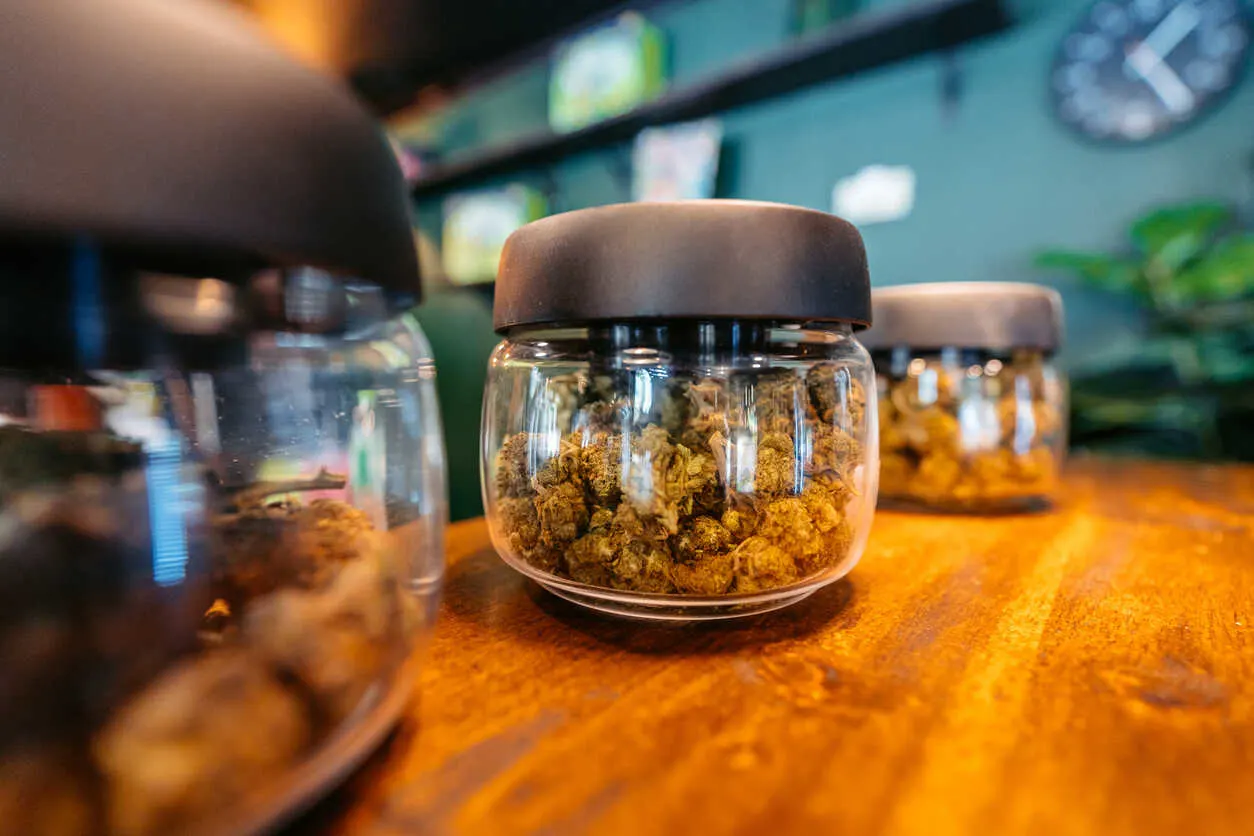
In 2018, Thailand became the first Asian nation to legalize the use of medicinal cannabis. In 2019, medical cannabis clinics began to appear in major metropolitan areas of Thailand. At the time, they were strictly offering CBD compounds, which provide relief from various types of pain and are renowned for their sleep-enhancing effects. The controversial THC elements of cannabis, which produce more psychological effects and are known for the “high” they induce, were not openly available at first but slowly crept into the mix.
I visited the Fresh Mediq clinic in my neighborhood and met Nuttamon Le Men M.D. (Dr. Ann). She’s a Harvard Medical School graduate and a staunch cannabis advocate in Thailand, now serving on the consulting board for the Government Pharmaceutical Organization (GPO).
As an American male who grew up in the 1970s, I didn’t think there was much about marijuana Dr. Ann could teach me, but I was wrong. She rattled off a dozen ailments that cannabis compounds had been scientifically proven to treat effectively.
Studies have shown cannabis to be effective at lowering blood pressure, reducing inflammation, treating anxiety disorders, treating gastrointestinal problems, reducing epileptic seizures, and preventing relapse from drug and alcohol addiction.
I had heard about some of the medicinal uses of cannabis but had never considered it until I experienced some serious nerve pain following a hip operation. Dr. Ann prescribed a CBD oil that requires a few drops daily. I can testify that it worked and helped regulate my sleep as well. Since then, I’ve met several expats living in Thailand who’ve used various cannabis-based treatments.
Leigh Conley, a retired Chicago cop I met, has early-stage Parkinson’s disease and experiences tremors. He uses a similar oil infused with both CBD and THC and reports that it helps reduce the occurrence of the tremors and his need for more expensive pharmaceuticals.
Last week, I ran into another old-timer expat from New York. He told me his wife is going through chemotherapy to treat breast cancer and uses cannabis to ward off nausea and boost her appetite. He added that it helps with his anxiety about her cancer as well.
Most expats here thought clinics like Dr. Ann’s were a harbinger of things to come. Cannabis users were required to “register” by having their blood pressure taken, height and weight recorded, and by checking the appropriate boxes on an “ailments” form. You receive an actual prescription and can return whenever you like or order online.
Medical marijuana became officially “a thing” in Thailand back in 2019. Nobody was smoking weed in public. It wasn’t Amsterdam. It all seemed very calm and under control.
COVID’s Impact on Thailand’s Cannabis Industry
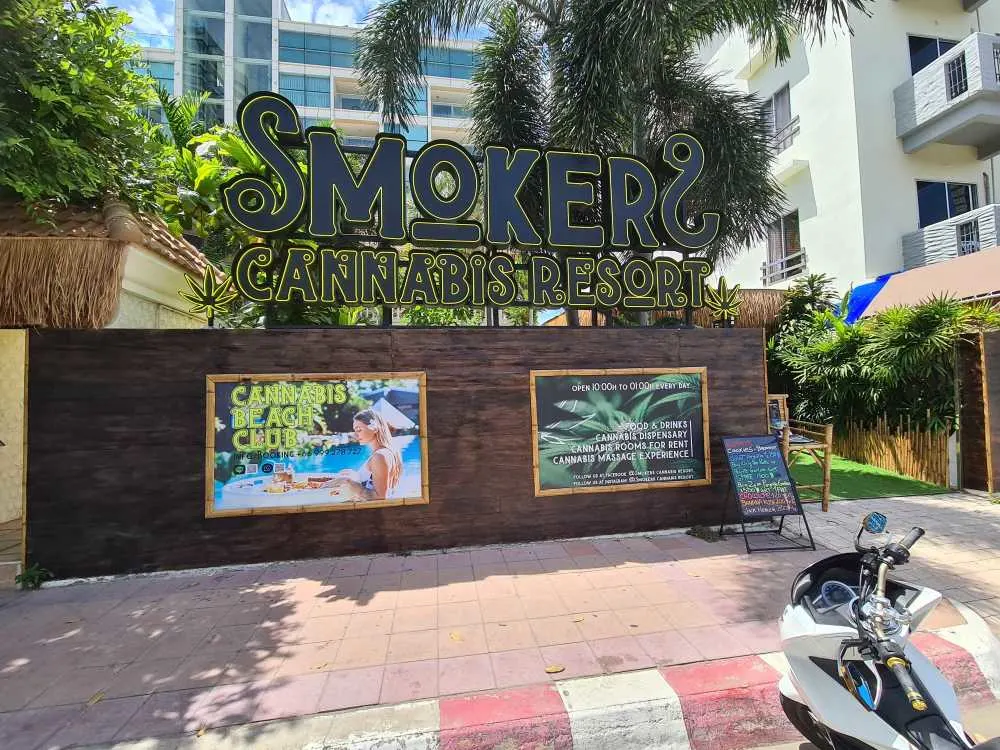
Two significant events happened simultaneously in Thailand, radically changing the direction and character of the cannabis industry: COVID and democracy.
Tourism in Thailand accounts for about 20% of its GDP. When the pandemic erupted, the entire country felt the pain. Airplanes full of tourists eager to soak in Thai culture and fuel the emerging economy just stopped landing. Places like Koh Samui, Phuket, Chiang Mai, and Pattaya became ghost towns. Imagine owning a hotel and having zero occupancy for two years.
Agriculture, manufacturing, and logistics, all vital engines of the Thai economy, were severely impaired as well. Thailand managed the medical aspect of the pandemic better than many countries, but the economic damage was severe. Jobs disappeared and never came back. That fact did not go unnoticed by rival political parties ramping up for a government change.
For seven years, Thailand had been run by a military junta under the command of General Prayut Chan-Ocha, who took over in a bloodless coup in 2014. I lived in Thailand during the full term of the junta’s leadership, and it did not affect expats much at all. The government continued to function. The currency didn’t collapse. We did not suffer a loss of freedom in any way.
Your chance to retire overseas now
Your chance to retire overseas now
Learn more about Thailand and other destinations by signing up to our daily IL Postcards e-letter and we'll immediately send you a free report: 20 Countries Compared, Contrasted, Ranked, and Rated.
You don’t have to be rich to enjoy a pampered retirement, you just need to know where to go.
With our 34th Annual Global Retirement Index, our experts hand you a detailed roadmap. Details and a Special Offer Here!

By submitting your email address, you will receive a free subscription to IL Postcards, Overseas Dream Home, The Untourist Daily and special offers from International Living and our affiliates. You can unsubscribe at any time, and we encourage you to read more about our Privacy Policy.
How Thailand’s Elections Shaped Cannabis Legalization
But the Thai people wanted their democracy back, so parties were reformed, elections were scheduled, and deadlines were set. Many of the old power brokers re-emerged, and one of the frontrunners for Prime Minister was our old friend and cannabis champion, Anutin Charnvirakul.
Anutin had already served in several cabinets, including that of the military government. He had been Minister of Finance, Minister of the Interior, and the Minister of Public Health just as the new elections were coming into focus.
As Thailand’s most vocal cannabis advocate, he had been successful in getting citizens accustomed to seeing medicinal marijuana clinics all over Thailand. Nobody gasped when they saw a sign with a big pot leaf on it.
Faced with a post-COVID economy desperately needing fresh air, new ideas to jump-start things were being touted by different political factions. Whoever devised a plan to put money in the hands of Thai people who needed it the most would certainly be a popular candidate.
Comprehensive View of Cannabis
That was when the Minister of Public Health took a step back and saw a more comprehensive view of the cannabis industry. Marijuana is the definition of a “cash crop.” Legalizing weed needed no “trickle-down” effect—it was instant money for the sector of the voting public most impacted by the pandemic.
On July 1, 2022, cannabis was removed from the list of “Category Five” narcotics. There wasn’t a “new law”; there was no law. Growing and harvesting that plant simply wasn’t illegal anymore.
Thai people have an intimate understanding of the phrase “cash crop,” so the retail recreational ganja business burst onto the scene in Thailand like a new hit record.
And what do you know? It attracted tourists too!
The Ganja Cafe Boom
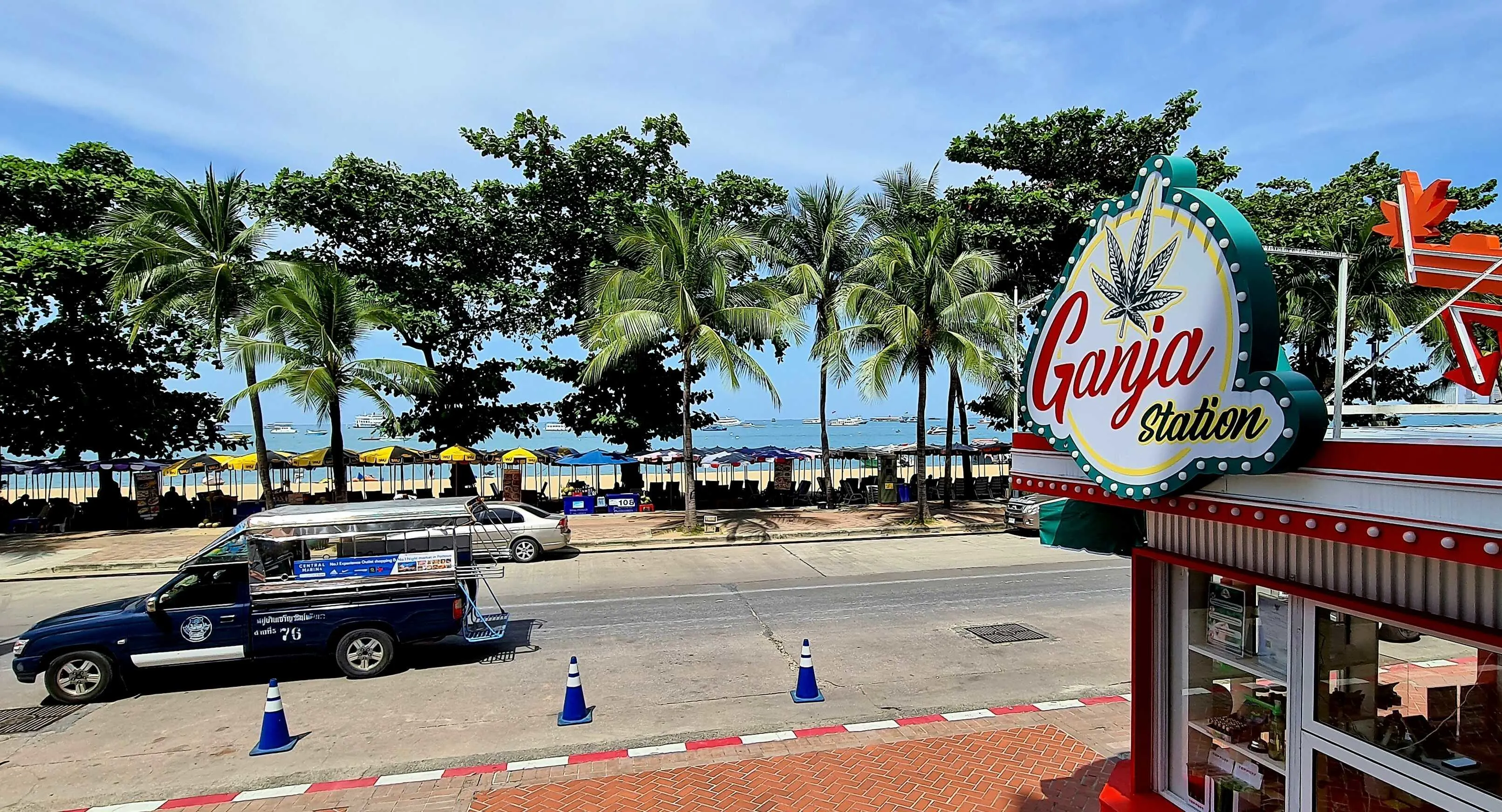
The proliferation of ganja dispensaries and cafes has been comical to watch. What’s most entertaining is the creativity of names. We have GanjaHub, GanjaWitch, Little Amsterdam, The Pothole, and my personal favorite, Global Chillage. They’re all similar in what they offer: a wide variety of marijuana strains in smokable form, edible pastries, cookies, candies, and various cannabis-infused drinks.
Here is where the law and cultural etiquette become entangled and blurred. The law didn’t change the way a “controlled substance” like cannabis was managed—it simply rendered it no longer “controlled.”
As you might imagine, there’s been a lot of confusion about who, what, and where cannabis can be consumed recreationally. Here are the current rules:
You must be at least 20 years old to possess, grow, or consume cannabis.
Possession and recreational use of cannabis is legal in private areas.
Cultivation at home is also legal but requires a license.
Pregnant or breastfeeding women are prohibited from purchasing or consuming cannabis.
Persons 20 years or older can take cannabis on domestic flights within Thailand but are recommended to put it in checked luggage to avoid security delays when boarding their flight.
It is illegal to take cannabis out of Thailand.
Smoking cannabis in public spaces is considered a “public nuisance” and a violation of the 1992 Public Health Act, carrying fines of 25,000 THB and possible incarceration for up to three months. This law is not specifically for cannabis consumption. Playing your music too loud, letting garbage pile up in front of your house, and excessively barking dogs all fall under the same regulation. If someone reports a nuisance, police will investigate and apply the law accordingly. I’ve never heard of anyone being arrested or fined for smoking ganja in a public space.
From a boots-on-the-ground perspective, my experience has been: “You can smoke all the weed you want, just don’t be an ***hole.” Where I live in Pattaya, customers openly consume ganja at cafes with dispensaries and open-air smoking areas.
The most popular configuration of a true ganja cafe is the classic Thai shophouse with the dispensary and coffee shop on the first two floors and a rooftop open area for smoking. Some are legitimate coffee shops or bars, while others are just dispensaries.
“The Pothole” in Pattaya was the first ganja cafe I visited in Thailand. It was clearly designed to be a “stoner’s heaven,” with no windows, a huge Bob Marley mural painted on the wall, Pink Floyd oozing out of the speakers, and a big Haagen-Dazs ice cream cooler near the bar.
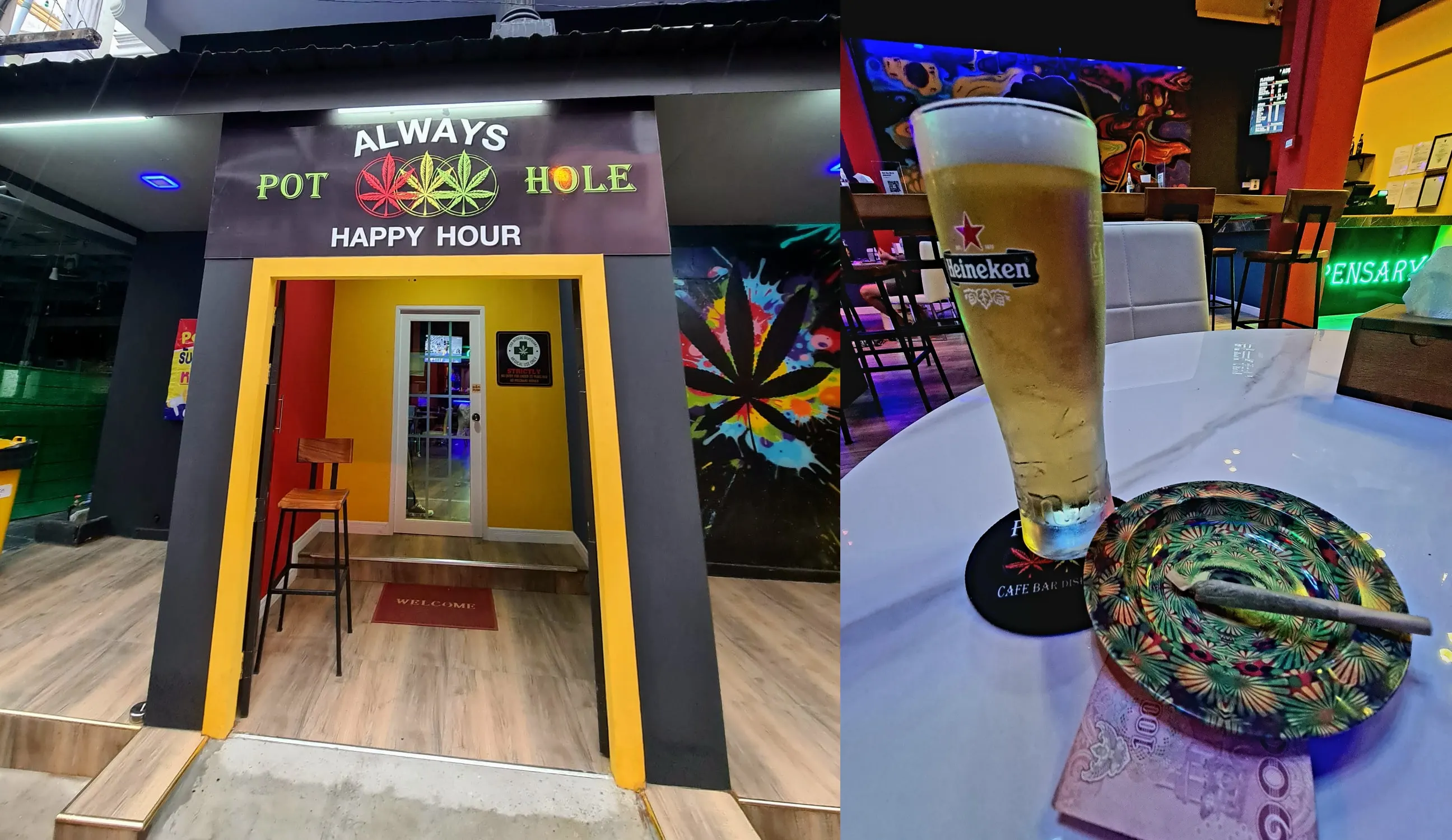
Thai Cannabis Culture
It’s funny to see Thais mimic Western cannabis culture for tourists because ganja has been part of their own culture for centuries. Cannabis came to Thailand from India and is used all over Southeast Asia as an ingredient for cooking as well as for medicine. Historically, it has been used as a muscle relaxer and to ease women’s labor pains.
Records reveal cannabis use in Thailand as far back as the 1600s, with King Narai the Great of the Ayutthaya Kingdom. Back then, ganja was completely legal and more than 90 traditional medicines were made from it. One of Thailand’s most beloved dishes, “guay tiew reua” (aka Boat Noodles), is traditionally made with marijuana added to the mix.
The Thai government attempted to control the herb and criminalized its cultivation, distribution, and consumption in 1934. Penalties weren’t very harsh, and cannabis use continued, albeit under the radar.
During the Vietnam War, U.S. soldiers claimed Thailand as their favorite spot for R&R, and many were introduced to recreational cannabis. Under intense pressure from the U.S. government over the next few decades, Thailand joined the “war on drugs” and increased the penalties for any “narcotic” to draconian levels.
In 2018, Thailand became the first Asian country to legalize medical cannabis use. In July 2022, we came full circle, and cannabis is completely legal again.
Ask an older Thai person what they think about the change in the law, and you’ll find they are blissfully unaware. Cannabis has been part of their culture for generations, and they never considered that the government had anything to do with the availability of it. All these fancy brand names and glitzy shops selling weed seem like silly games designed to attract foreign tourists to them.
A Pro-Cannabis Government Emerges in Thailand
As you might expect, opposing political parties tried desperately to make an issue of the burgeoning new industry and demanded the recriminalization of the demon weed. In May of this year, elected Prime Minister Srettha Thavisin vowed to do just that, saying he was determined to reclassify cannabis as a narcotic.
On August 14, the constitutional court dismissed Srettha for gross ethics violations, so he never got his wish. On August 16, Prime Minister Paetongtarn Shinawatra was sworn in, and our old pal Anutin Charnvirakul became Deputy Prime Minister.
Now, the second most powerful person in the Thai government is the most pro-cannabis person in the country. The campaign to reverse the legalization of cannabis is over.
We should expect more rules eventually. New legislation has been presented to Thai lawmakers to clarify the government’s position on regulating cannabis use. According to the Bangkok Post:
“The draft bill appears to take a softer stance compared to previous government efforts to regulate the industry. For one, it no longer contains a clause that explicitly outlaws recreational use of cannabis, which was proposed in an earlier draft by ex-prime minister Srettha Thavisin's administration. It also effectively means the new government has abandoned a bid to reclassify the plant as a 'narcotic.'”
Nobody here, foreign or domestic, thinks regulations will affect the availability of cannabis for anyone. No country that has declared cannabis legal has ever reversed the decision. Most Thais I know are proud to be the first Asian country to make this progressive move.
Legal weed is here to stay. That genie just isn’t going to go back in the bottle.
Ganja Etiquette
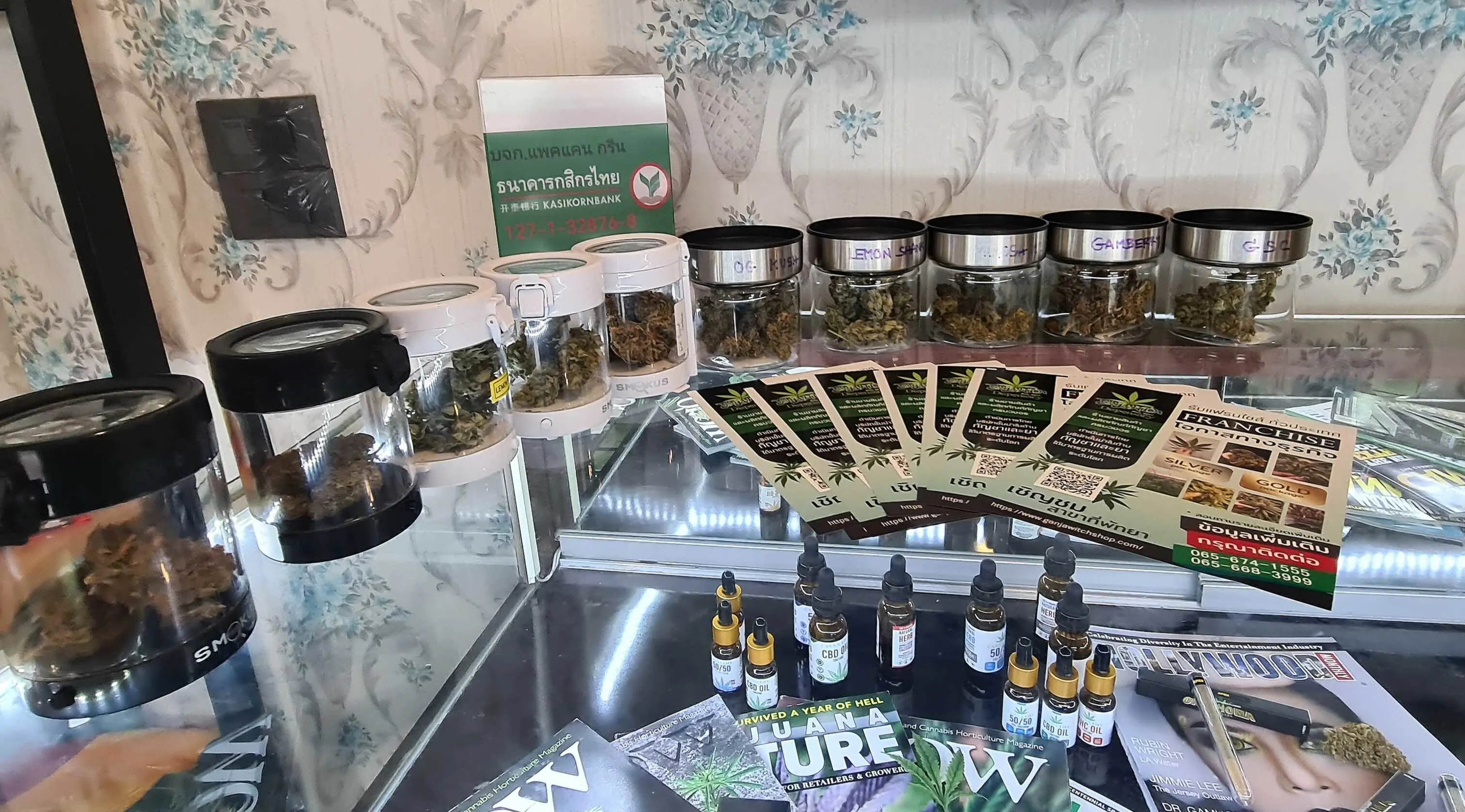
If you come to Thailand and want to explore cannabis-based medical treatments, I recommend visiting a clinic affiliated with the GPO of Thailand. All their products are tested and certified safe by the Thai equivalent of the FDA.
If you come to Thailand and want to engage in recreational marijuana use, please pay attention to proper ganja etiquette. Don’t smoke or vape in a public place, and be mindful of where you are and who is around you. Smoking ganja around kids is frowned upon.
Whether you are considering medical cannabis to treat a particular ailment or you just want to take the edge off after a long flight to Thailand, the desired effect is available without any hassle.
They don’t call it “The Land of Smiles” for nothing.
Your chance to retire overseas now
Your chance to retire overseas now
Learn more about Thailand and other destinations by signing up to our daily IL Postcards e-letter and we'll immediately send you a free report: 20 Countries Compared, Contrasted, Ranked, and Rated.
You don’t have to be rich to enjoy a pampered retirement, you just need to know where to go.
With our 34th Annual Global Retirement Index, our experts hand you a detailed roadmap. Details and a Special Offer Here!

By submitting your email address, you will receive a free subscription to IL Postcards, Overseas Dream Home, The Untourist Daily and special offers from International Living and our affiliates. You can unsubscribe at any time, and we encourage you to read more about our Privacy Policy.
